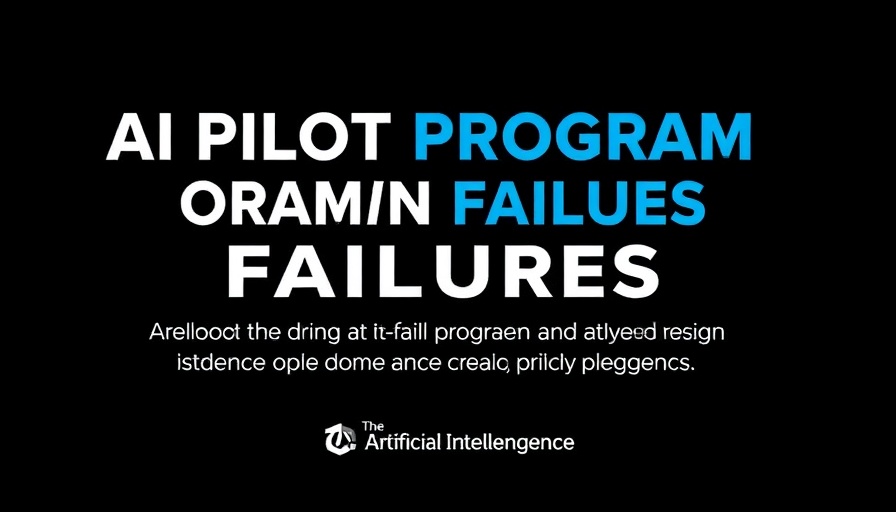
The AI Adoption Dilemma: Understanding the 95% Failure Rate
In a recent episode of The Artificial Intelligence Show, the startling findings from a new MIT study came to light, revealing that a staggering 95% of AI pilot programs fail. This statistic highlights a growing crisis in how organizations are approaching AI adoption. The study emphasizes that while many companies are eager to implement AI technologies, the reality is that a majority struggle to integrate these systems effectively. Enhancing our understanding of why these pilots fail is crucial as we navigate through this transformative era.
Addressing the Fear of AI: The Potential for Conscious Machines
Another topic tackled by hosts Paul Roetzer and Mike Kaput was the rise of "seemingly conscious AI," as warned by Mustafa Suleyman, Co-founder of DeepMind. The rapid advancements in AI technology raise profound questions about the implications of machines that could potentially exhibit human-like consciousness. The societal readiness for such developments is questionable, heightening the urgency for discussions around ethical considerations and implications for the workforce.
The Impact of AI on Job Markets: A Double-Edged Sword?
The episode further explored the significant impact AI adoption is having on the job market. One case highlighted was a CEO who laid off 80% of his workforce due to resistance against AI integration. This serves as a wake-up call for employees and employers alike: the pressure to adapt to AI is intensifying, with the possible stress of job loss looming. Yet, the conversation also acknowledges that AI can improve productivity and create new job opportunities, necessitating a balanced perspective on its adoption.
Corporate Reorganizations in AI: A Sneak Peek into Meta's Strategy
Meta's recent reorganization efforts were also a focal point on the show, particularly under the leadership of CEO Mark Zuckerberg. The company aims to refine its focus on AI to keep pace with competitors. This shift underscores the need for tech companies to be agile in their strategies, investing in AI talent while staying aligned with their overarching missions. This is not just a trend; it's a requirement in a rapidly evolving tech landscape.
The Environmental Implications of AI
As AI continues to reshape business operations, its environmental impact is becoming a critical narrative. The show highlighted discussions on the carbon footprint associated with AI-powered services, drawing attention to the need for sustainability in technological advancement. Moving towards greener AI technologies can benefit the planet while ensuring that businesses are making responsible choices.
Looking Ahead: The Future of AI with GPT-6
Lastly, Sam Altman’s discussion on the anticipated features of GPT-6 hints at the next evolution in AI technology, promising memory capabilities that could significantly enhance user experiences. The ability to recall past interactions could create more personalized services, thus resonating with consumer expectations. This could lead to new avenues for businesses in content marketing, customer service, and beyond.
As we reflect on the critical insights from this episode, it is clear that the journey towards effective AI adoption is complex and multifaceted. Those engaged in this field must stay informed, adapt, and approach AI with both curiosity and caution.
 Add Row
Add Row  Add
Add 




Write A Comment